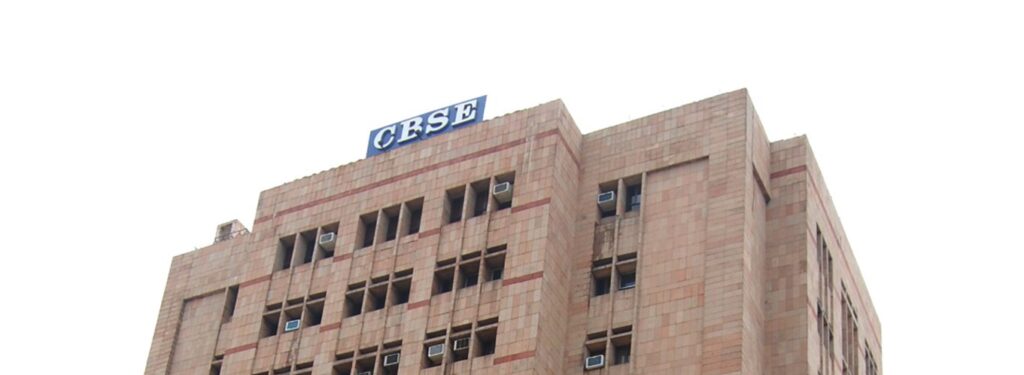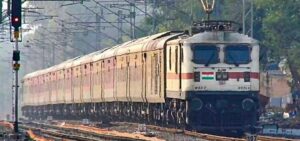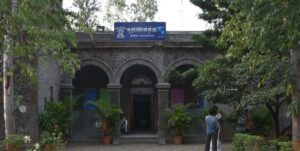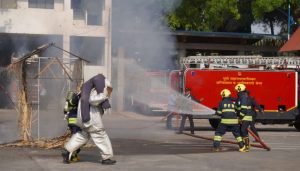CBSE Releases Special Scheme Of Assessment For Classes X And XII, Academic Session To Be Divided Into Two terms

New Delhi, 5th July 2021: COVID19 pandemic caused almost all CBSE schools to function in a virtual mode for the most part of the academic session of 2020-21.
Due to the extreme risk associated with the conduct of Board examinations during the second wave in April 2021, CBSE had to cancel both its class X and XII Board examinations of the year 2021 and results are to be declared on the basis of a credible, reliable, flexible and valid alternative assessment policy.
This, in turn, also necessitated deliberations over alternative ways to look at the learning objectives as well as the conduct of the Board Examinations for the academic session 2021-22 in case the situation remains unfeasible.
CBSE has also held stakeholder consultations with Government schools as well as private independent schools from across the country especially schools from the remote rural areas and a majority of them have requested for the rationalization of the syllabus, similar to last year in view of reduced time permitted for organizing online classes.
The Board has also considered the concerns regarding differential availability of electronic gadgets, connectivity and effectiveness of online teaching and other socio-economic issues especially with respect to students from economically weaker sections and those residing in far-flung areas of the country.
In a survey conducted by CBSE, it was revealed that the rationalized syllabus notified for the session 2020-21 was effective for schools in covering the syllabus and helped learners in achieving learning objectives in a less stressful manner. In the above backdrop and in line with the Board’s continued focus on assessing stipulated learning outcomes by making the examinations competencies and core concepts based, student-centric, transparent, technology-driven, and having advanced provision of alternatives for different future scenarios, the schemes have been introduced for the Academic Session for Class X and Class XII 2021- 22.
Special Scheme for 2021-22
A. Academic session to be divided into 2 Terms with approximately 50% syllabus in each term: The syllabus for the Academic session 2021-22 will be divided into 2 terms by following a systematic approach by looking into the interconnectivity of concepts and topics by the Subject Experts and the Board will conduct examinations at the end of each term on the basis of the bifurcated syllabus. This is done to increase the probability of having a Board conducted classes X and XII examinations at the end of the academic session.
B. The syllabus for the Board examination 2021-22 will be rationalized similar to that of the last academic session to be notified in July 2021. For academic transactions, however, schools will follow the curriculum and syllabus released by the Board vide Circular no. F.1001/CBSEAcad/Curriculum/
C. Efforts will be made to make Internal Assessment/ Practical/ Project work more credible and valid as per the guidelines and Moderation Policy to be announced by the Board to ensure fair distribution of marks.
Details of Curriculum Transaction
- Schools will continue teaching in distance mode till the authorities permit inperson mode of teaching in schools.
- Classes IX-X: Internal Assessment (throughout the year-irrespective of Term I and II) would include the 3 periodic tests, student enrichment, portfolio and practical work/ speaking listening activities/ project.
- Classes XI-XII: Internal Assessment (throughout the year-irrespective of Term I and II) would include end of topic or unit tests/ exploratory activities/ practicals/ projects.
- Schools would create a student profile for all assessments undertaken over the year and retain the evidences in digital format.
- CBSE will facilitate schools to upload marks of Internal Assessment on the CBSE IT platform.
- Guidelines for Internal Assessment for all subjects will also be released along with the rationalized term wise divided syllabus for the session 2021-22. The Board would also provide additional resources like sample assessments, question banks, teacher training etc. for more reliable and valid internal assessments.
Term I Examinations:
- At the end of the first term, the Board will organize Term I Examination in a flexible schedule to be conducted between November-December 2021 with a window period of 4-8 weeks for schools situated in different parts of country and abroad. Dates for conduct of examinations will be notified subsequently.
- The Question Paper will have Multiple Choice Questions (MCQ) including case-based MCQs and MCQs on assertion-reasoning type. Duration of test will be 90 minutes and it will cover only the rationalized syllabus of Term I only (i.e. approx. 50% of the entire syllabus).
- Question Papers will be sent by the CBSE to schools along with marking scheme.
- The exams will be conducted under the supervision of the External Center Superintendents and Observers appointed by CBSE.
- The responses of students will be captured on OMR sheets which, after scanning may be directly uploaded at CBSE portal or alternatively may be evaluated and marks obtained will be uploaded by the school on the very same day. The final direction in this regard will be conveyed to schools by the Examination Unit of the Board.
- Marks of the Term I Examination will contribute to the final overall score of students.
Term II Examination/ Year-end Examination:
- At the end of the second term, the Board would organize Term II or Yearend Examination based on the rationalized syllabus of Term II only (i.e. approximately 50% of the entire syllabus).
- This examination would be held around March-April 2022 at the examination centres fixed by the Board.
- The paper will be of 2 hours duration and have questions of different formats (case-based/ situation based, open ended- short answer/ long answer type).
- In case the situation is not conducive for normal descriptive examination a 90 minute MCQ based exam will be conducted at the end of the Term II also.
- Marks of the Term II Examination would contribute to the final overall score.
Assessment / Examination as per different situations
A. In case the situation of the pandemic improves and students are able to come to schools or centres for taking the exams. Board would conduct Term I and Term II examinations at schools/centres and the theory marks will be distributed equally between the two exams.
B. In case the situation of the pandemic forces complete closure of schools during November-December 2021, but Term II exams are held at schools or centres. Term I MCQ based examination would be done by students online/offline from home – in this case, the weightage of this exam for the final score would be reduced, and weightage of Term II exams will be increased for declaration of final result.
C. In case the situation of the pandemic forces complete closure of schools during March-April 2022, but Term I exams are held at schools or centres. Results would be based on the performance of students on Term I MCQ based examination and internal assessments. The weightage of marks of Term I examination conducted by the Board will be increased to provide year end results of candidates.
D. In case the situation of the pandemic forces complete closure of schools and Board conducted Term I and II exams are taken by the candidates from home in the session 2021-22. Results would be computed on the basis of the Internal Assessment/Practical/Project Work and Theory marks of Term-I and II exams taken by the candidate from home in Class X / XII subject to the moderation or other measures to ensure validity and reliability of the assessment.
“In all the above cases, data analysis of marks of students will be undertaken to ensure the integrity of internal assessments and home based exams”, stated Dr Joseph Emmanuel Director (Academics), CBSE.








